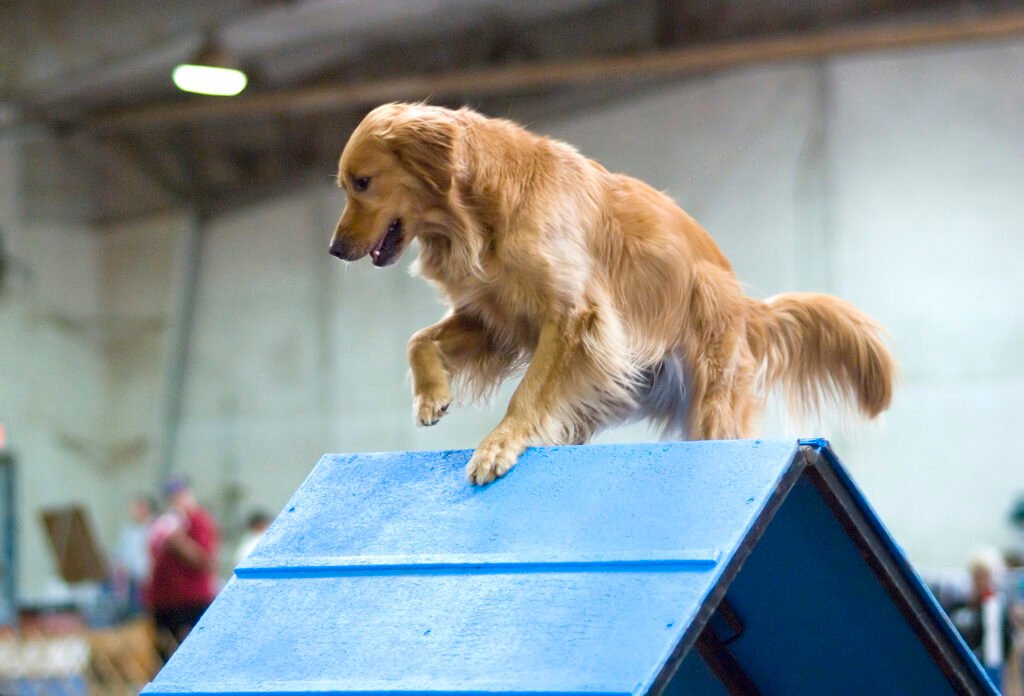Ever wondered which four-legged family member truly deserves the title of “genius” in your household? Your dog might be giving you those knowing looks for good reason. Research has revealed some fascinating insights about canine intelligence that go far beyond basic obedience tricks.
Scientists have developed sophisticated methods to measure dog intelligence, examining everything from problem-solving abilities to emotional understanding. These studies paint a remarkable picture of our canine companions’ cognitive abilities. So let’s dive into what science tells us about the brightest breeds walking among us today.
The Science Behind Measuring Canine Intelligence

Scientists measure dog intelligence through three distinct categories: instinctive intelligence (performing bred tasks without training), adaptive intelligence (problem-solving abilities), and working intelligence (learning from humans). Research shows that dogs have the mental ability of a 2-year-old child, and can learn more than 150 different words and gestures. The most comprehensive study surveyed 199 obedience trial judges from the American and Canadian Kennel Clubs, focusing on breeds that received at least 100 judge responses to ensure statistical validity.
The top-tier brightest working dogs tend to learn a new command in less than five exposures and obey at least 95 percent of the time. Recent research from Scientific Reports found that breeds differed mainly in respect to social cognition, problem-solving, and inhibitory control, with dogs generally being about as intelligent as a 2- or 2.5-year-old human.
Border Collie: The Undisputed Champion

Border collies consistently topped intelligence rankings, with substantial agreement among judges naming them in the top ten. These black and white cuties clock in at number one on intelligence lists, possessing what the American Kennel Club considers a “herding eye” – an intense gaze that speaks to the breed’s overwhelming level of focus. While most dogs can comprehend around 150-200 words, some exceptionally trained border collies can learn significantly more.
Border Collies process commands faster than any other breed, making them the smartest dog breed in the world, often responding after hearing words only a few times, usually less than 5 repetitions. Their exceptional memory allows them to maintain focus through complex herding tasks and competitive sports. Between their intelligence and work ethic, these dogs are powerhouses, but really need a job and a purpose to feel fulfilled.
Belgian Malinois: The New Intelligence King

According to some recent research, the Belgian Malinois performed exceptionally well in comprehensive cognitive testing. After conducting cognitive tests on more than 1,000 specimens from 13 dog breeds, researchers at the University of Helsinki found that the Belgian Malinois earned outstanding points for solving problems and understanding human needs, though Border Collies ranked highest overall. The breed passed the V-detour task, a problem-solving set-up, with flying colors, and proved adept at interpreting human gestures.
In a comprehensive study conducted by the University of Helsinki, the Malinois ranked highest among 13 breeds in cognitive tests assessing problem solving, memory, and the ability to interpret human gestures, with trained Malinois retaining complex commands and routines with minimal repetitions. The cognitive abilities of a Belgian Malinois are often compared to that of a human child aged between 3 and 5 years, possessing a capacity for learning, problem-solving, and understanding complex commands.
Poodle: Beauty and Brains Combined

While poodles are often characterized by images of wealth and fanciness, the second smartest dog breed has a rich history of hunting and even time in the circus, with these bright dogs needing proper training to prevent them from assuming the alpha role in your house. Although poodles often have a reputation of being fancy and high-maintenance, they’re right behind border collies in terms of intelligence, representing the total package with looks, athleticism, and intelligence, plus they’re hypoallergenic.
The versatile Poodle comes in second place, with The Kennel Club explaining that “Poodles are highly intelligent and obedient, so as a result they are typically easy to train”. Poodles are known for their problem-solving abilities and adaptability, excelling in working roles and proving more versatile in their abilities to adapt well to various tasks and environments.
German Shepherd: The Reliable Genius

German Shepherds are the third most intelligent breed, with these playful pups used by police officers for the most important tasks – from sniffing out bombs and illegal drugs to finding missing people and aiding the handicapped. Acting, police work, messengers – the third-most intelligent breed is a true working dog, picking up on commands so quickly that German shepherds have an uncanny ability to take on a wide array of jobs.
According to rankings, the noble German Shepherd is the second most intelligent herding dog and the third most intelligent dog in general, bred for their superior intelligence and able to master a new command on the first try. These fiercely intelligent dogs are also known for their extreme athleticism, and are used by police and military due to their trainability and adaptability.
Golden Retriever: The People-Pleasing Prodigy

Golden Retrievers rank 4th in dog intelligence, which isn’t really surprising since this breed is used for both service work and as therapy dogs. As a result of their lineage, golden retrievers are highly intelligent and trainable, even smart enough to forgive mistakes of inexperienced trainers and marked by their overall friendliness. This Sporting Group member is naturally willing to please its owner, with the loyal Golden Retriever catching on quickly and happy to outperform other retrievers in the obedience ring.
Golden Retrievers are people dogs, they are affectionate and eager to please which means they are obedient too and learn easily. Golden Retriever is an athletic breed with lots of intelligence and trainability, friendly dogs with outgoing personalities who commonly shine in obedience trials.
Doberman Pinscher: The Strategic Thinker

This distinctive black and tan breed easily vies for the valedictorian of the Working Group, named after Louis Dobermann, who developed the breed to act as a fearless protector, with the Doberman Pinscher being a highly perceptive and active dog who excels at obedience. Dobermans serve as members of many police K9 units because of their ability to learn quickly and their athletic endurance, being highly trainable and eager to please their people.
Doberman pinschers are war dogs, dubbed “devil dogs,” the highly intelligent breed was adopted by the US Marine Corps because they could detect the presence of men several hundred miles away. Dobermans are a guardian and companion breed that will want to be involved with whatever you’re doing, rewarding dogs to train as they are eager to please and love a new challenge.
Shetland Sheepdog: The Compact Genius

A brainiac in a 12 to 15-inch package, the Shetland Sheepdog lives to herd anything from sheep to children and loves its people, fast, agile, and clever, this Collie in miniature outshines canine competitors in dog sports. The Shetland Sheepdog absolutely dominates in dog sports, not just because they’re athletic, but because they’re smart to boot, with Shelties being one of the most winning breeds in the sport of canine agility.
Bred to herd sheep on rugged island farms, the Shetland sheepdog has a mind to master complex tasks, with it being common for Shelties to remember commands, sequences, and habits of favorite people. The Shetland Sheepdog, or Sheltie, comes from the Shetland Isles of Scotland, with this Scottish dog breed being one of the smartest dog breeds that love a challenge, excelling at agility and herding.
Labrador Retriever: The Versatile Scholar

With a goofy grin, you might not expect the lab to be on this list, but they’re a lot smarter than most people think, with the Labrador Retriever being a longtime favorite of families and hunters alike because of their friendly and intelligent nature. These qualities also make this breed a great choice for service dogs, with studies suggesting the Labrador Retriever is the least aggressive dog breed.
Labrador Retrievers are highly intelligent dogs known for their gentle temperament and trainability, and while they may not possess the same level of intensity or drive as Belgian Malinois, their intelligence is still notable and makes them excellent service and therapy dogs. Research found that the Labrador Retriever was very good at reading human gestures, but not so good at spatial problem-solving ability.
Papillon: The Tiny Einstein

French for ‘butterfly,’ this breed is the only Toy Group member in the top intelligence list, small in size but big in brain power, the Papillon is super fast and also a top agility scorer. Bred in Italy during the Renaissance, the Papillon was a favorite among nobles because of their high intelligence, with Papillons being tiny dogs, weighing less than 10 pounds when fully grown.
Even though they’re the smallest breed on the list, Papillons are protective of their owners and serve as great watchdogs. In intelligence rankings, the smartest of the small dog breeds is the Papillon.
Conclusion: Intelligence Comes in Many Forms

Research responses were remarkably consistent; however, many judges pointed out that there are exceptions in every breed and that a lot comes down to training, with individual variations always existing. Study authors explain that most breeds had their own strengths and weaknesses, with examples like the Labrador Retriever being very good at reading human gestures but not so good at spatial problem-solving ability, while some breeds like the Shetland Sheepdog scored quite evenly in almost all tests.
Intelligence in dogs, much like in humans, manifests in countless ways. Whether you’re drawn to the laser-focused Border Collie or the versatile Golden Retriever, remember that every dog has their own unique cognitive gifts. The smartest choice? Finding a breed whose intelligence style matches your lifestyle and training commitment. What do you think about these rankings? Does your furry friend demonstrate the intelligence traits of their breed?

Jan loves Wildlife and Animals and is one of the founders of Animals Around The Globe. He holds an MSc in Finance & Economics and is a passionate PADI Open Water Diver. His favorite animals are Mountain Gorillas, Tigers, and Great White Sharks. He lived in South Africa, Germany, the USA, Ireland, Italy, China, and Australia. Before AATG, Jan worked for Google, Axel Springer, BMW and others.



